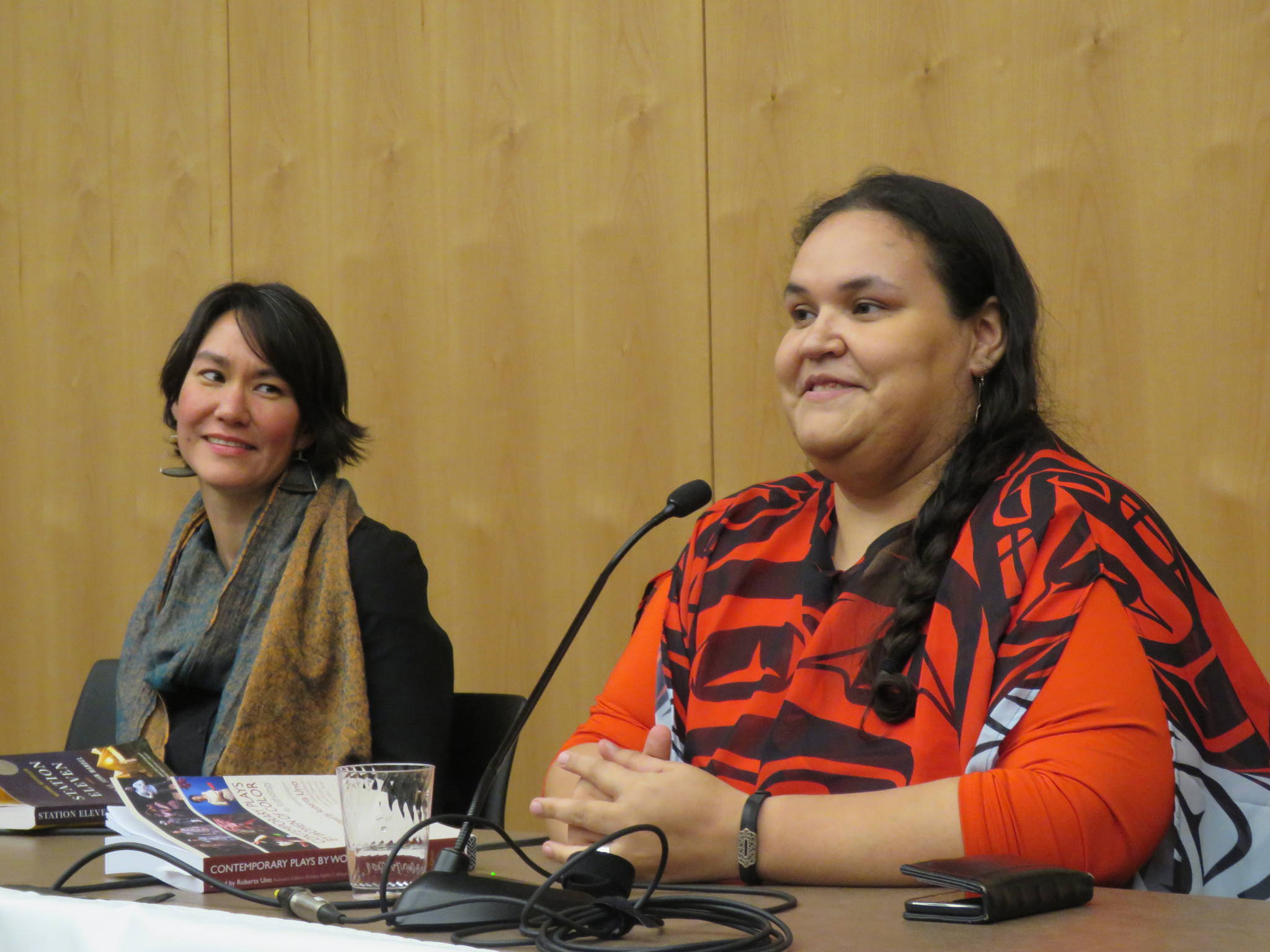Zombies, North Korea’s threats, a rogue virus: the end of the world may not be upon Juneau at the moment, but the community is discussing what has happened and what might, inspired by “Station Eleven,” a post-apocalyptic literary novel by Emily St. John Mandel. Juneau Public Libraries, the Alaska State Library, and Egan Library at the University of Alaska Southeast have ordered hundreds of copies and are giving them away for free as part of The Big Read, an National Endowment for the Arts program for which JPL received a $15,000 grant.
So far, the program has been popular.
“Here at our three public libraries, we ordered 200 books, and we already handed them out,” said Beth Weigel, programming and events coordinator for JPL. “We just ordered another 200, and (as of the end of September) we’re already through the first two boxes.”
The state library ordered the same amount, and UAS has been handing them out to attendees of new student orientations as well as giving them away to interested readers, she said.
One of the first major events around The Big Read was a thought-provoking 49 Writers Crosscurrents panel at the Alaska State Museum on Sept. 29. It brought poet Joan Naviyuk Kane, playwright Vera Starbard Bedard, and novelist Don Rearden to Juneau to discuss “Station Eleven,” its themes, and their application to Alaska.
As all of the panelists pointed out: the end of the world may seem to the characters of “Station Eleven” like it hasn’t happened before — but it has, for indigenous peoples around Alaska (and the world), who were decimated by diseases brought by Russians and Europeans. Natural disasters even today can also be an apocalypse to those who survive them.
Kane, who is Iñupiaq with family from King Island and Mary’s Igloo, and Starbard, who is Tlingit and Dena’ina, exemplify a theme of the book, Rearden pointed out: that art and survival are intertwined.
Rearden, whose novel “The Raven’s Gift” features a post-apocalyptic Alaska, said that the apocalypse is “perhaps not as frightening in Alaska, because people know how to survive… they have already done it.”
Starbard read from “Our Voices Will Be Heard,” a powerful play about generational trauma and child sexual abuse performed by Perseverance Theatre in 2016. She is currently Perseverance’s writer-in-residence.
Kane read from “Legend,” a poem about apocalyptic events Iñupiaq people have survived, among them “a year of two winters”:
“…No
Animal stirs in the noiseless
Quick of a year of two winters,
But marrow:
Gristle of a bloated fish, roots
Split and cached, skin torn
From the hull of a boat
Long withdrawn from water,” she read.
Juneau’s participation in the program, Weigel said, is modeled after UAS’ several years of participation in the “One Campus, One Book” program, coordinated by public services librarian and associate professor Jonas Lamb.
Future events include free films at the Gold Town Theatre, a drawing workshop, a reading of King Lear, and a Juneau Symphony concert, among many others.
“We selected ‘Station Eleven’ as our NEA Big Read title because we see it as a story to inspire conversations about survival, be it physical, emotional, or cultural, while acknowledging, as Mandel writes, that mere ‘survival is insufficient.’ To be resilient in the aftermath of traumatic events, we need art in many forms to express hope and as a path to healing” Weigel has written.
For more information about The Big Read in Juneau, as well as a list of upcoming events, go to https://bigreadjuneau.org/.

